Find Help
More Items From Ergsy search
-

Eye Injections at Royal Bournemouth Hospital
Relevance: 100%
-
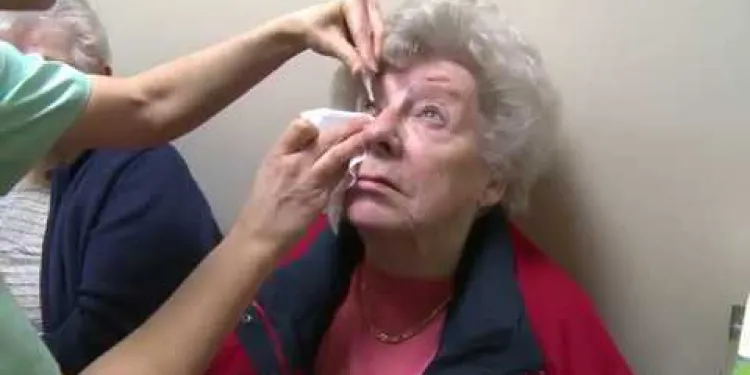
Eye Injections at Royal Bournemouth Hospital
Relevance: 100%
-

How to inject insulin
Relevance: 62%
-

Are GLP-1 medications injectable?
Relevance: 57%
-

Does Botox injection hurt?
Relevance: 55%
-

Diabetes Eye Screening
Relevance: 54%
-
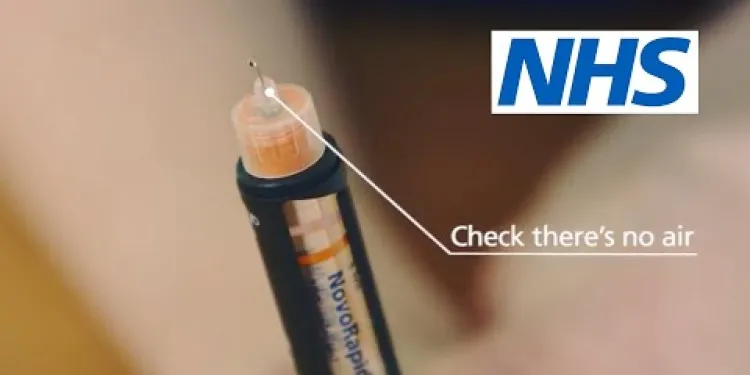
Diabetes: How to inject insulin | NHS
Relevance: 53%
-
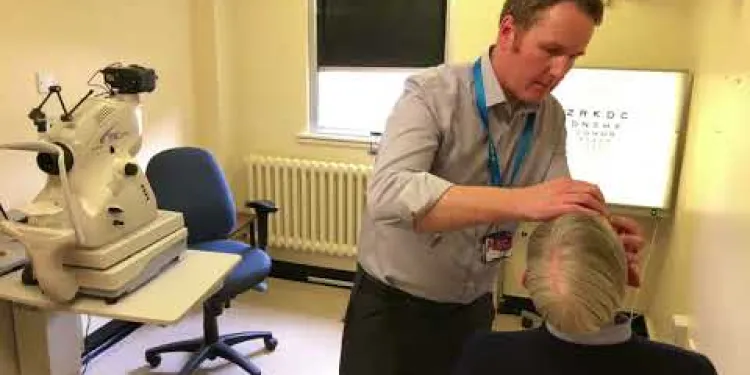
Derbyshire Diabetic Eye Screening - Diabetic Eye Screening
Relevance: 52%
-

What is hypotony in the eye?
Relevance: 50%
-

Are there any self-tests for eye pressure?
Relevance: 49%
-

What are the limitations of self-testing for eyes?
Relevance: 49%
-

What is self-testing for eye patients?
Relevance: 48%
-

What is the eye condition hypotony?
Relevance: 47%
-

How often should I self-test my eyes?
Relevance: 47%
-
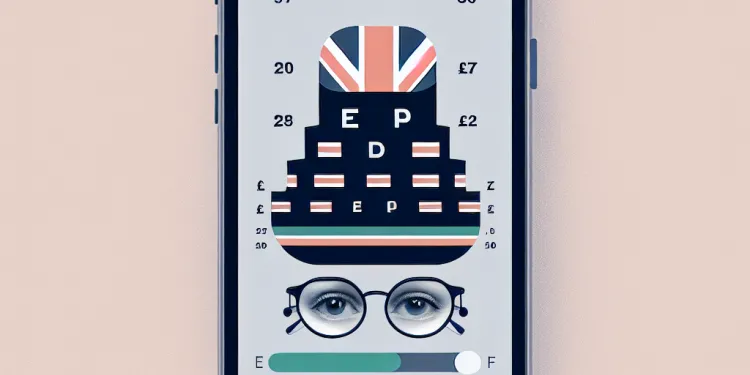
How accurate are app-based eye tests?
Relevance: 47%
-
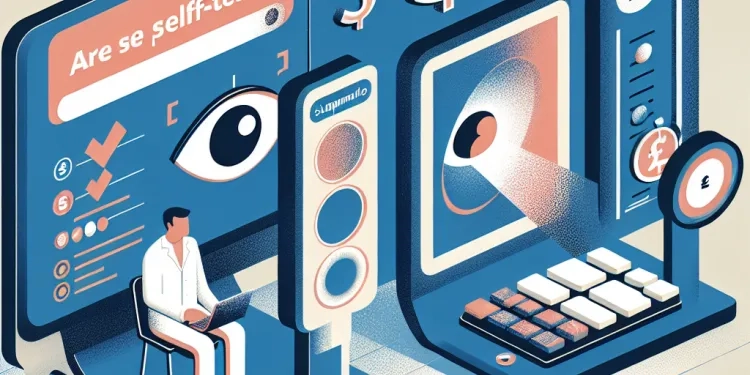
Are self-tests a substitute for professional eye exams?
Relevance: 47%
-

Can I use a smartphone for self-testing my eyes?
Relevance: 46%
-

Evidence-Based Interventions: injections for non-specific low back pain without sciatica
Relevance: 46%
-

Can self-testing detect all eye conditions?
Relevance: 45%
-
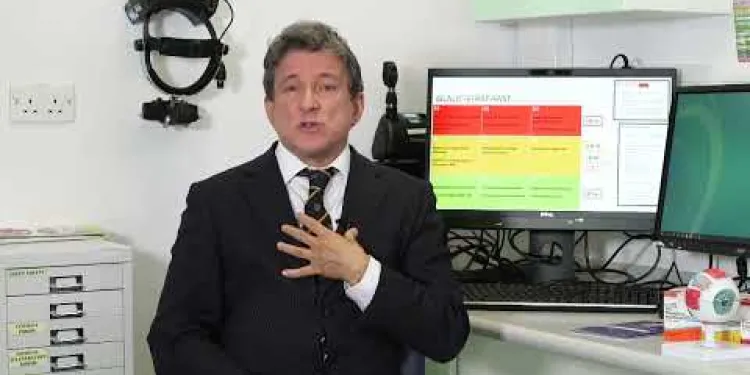
Glaucoma: general side effects of eye drops
Relevance: 45%
-

Do I need any special equipment for eye self-testing?
Relevance: 45%
-

Can hypotony occur in both eyes?
Relevance: 45%
-

Why would someone need to self-test their eyes?
Relevance: 45%
-
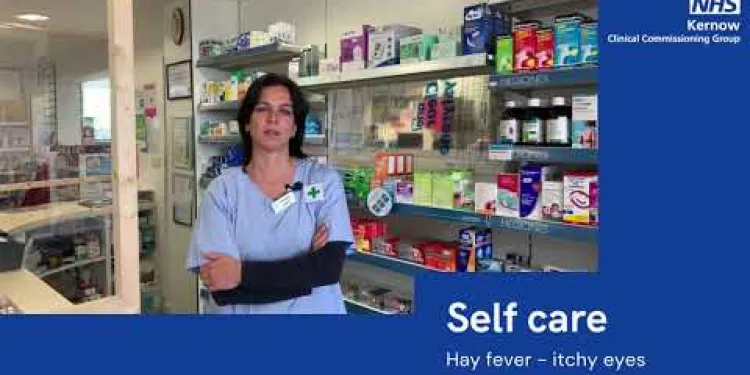
Self care - hay fever itchy eyes
Relevance: 44%
-

Should I share the results of my self-tests with my eye doctor?
Relevance: 44%
-

West Midlands LEHN Animated Video on Eye Health
Relevance: 44%
-
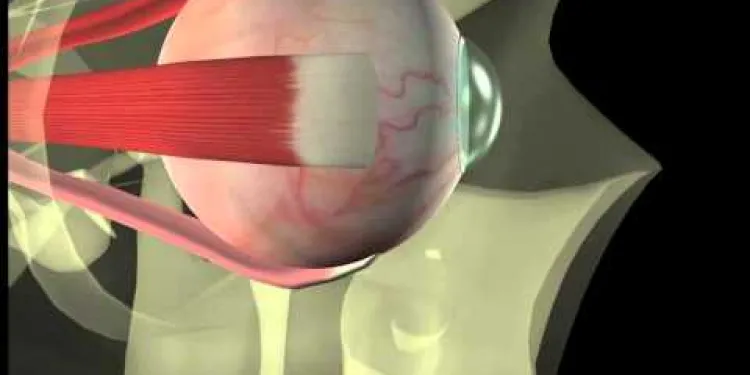
Thyroid eye disease. Squint surgery - The operation
Relevance: 44%
-
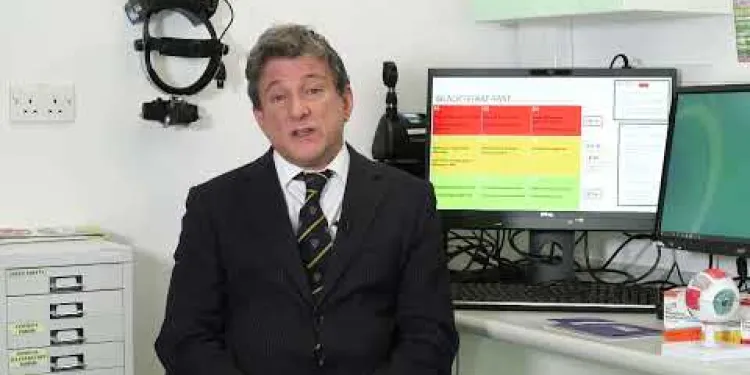
Glaucoma: how often should i take my eye drops?
Relevance: 43%
-
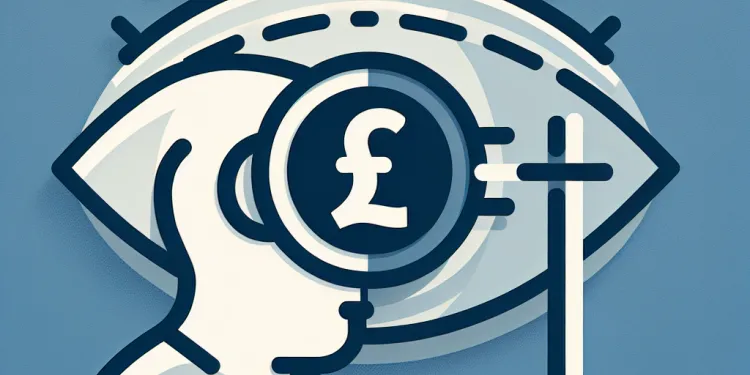
How does self testing for eye patients work?
Relevance: 43%
-
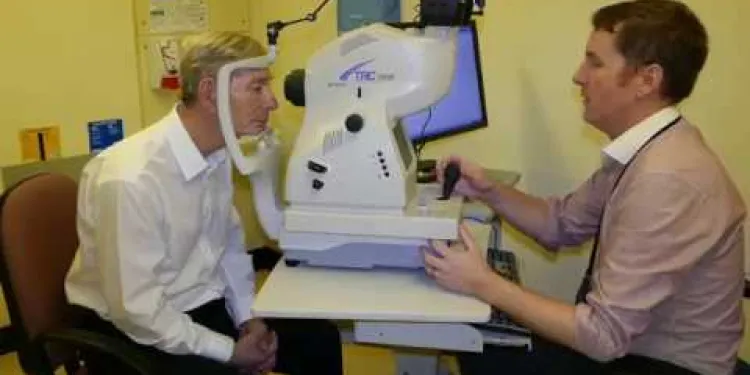
Derbyshire Diabetic Eye Screening - Your Screening Appointment
Relevance: 43%
-

What types of self-tests are available for eye patients?
Relevance: 43%
-

What should I do if I experience side effects after a Botox injection?
Relevance: 43%
-
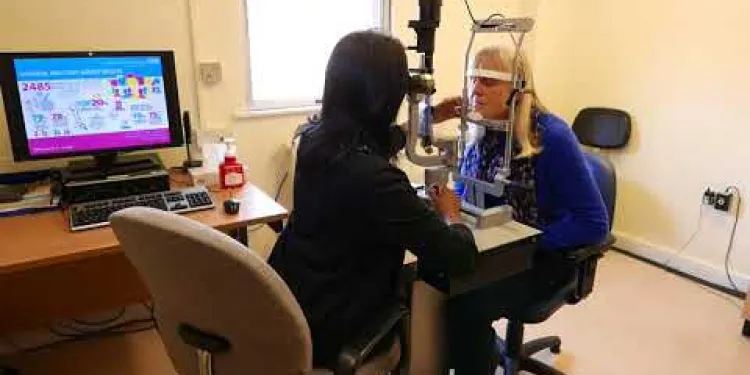
Derbyshire Diabetic Eye Screening - Assessment Clinic Appointment
Relevance: 43%
-

North Yorkshire Diabetic Eye Screening Programme - A day in the life
Relevance: 40%
-

Do I need any vaccine injections for EU countries?
Relevance: 37%
-

How should I inject Mounjaro?
Relevance: 32%
-

Where can I find reliable self-testing tools for my eyes?
Relevance: 32%
-
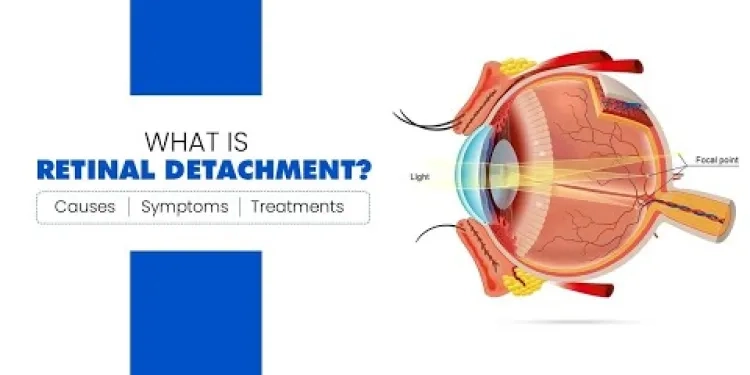
What is Retinal Detachment (Detached Retina)? Causes, Symptoms, and Treatment Options
Relevance: 26%
-

Do certain medications contribute to hypotony?
Relevance: 25%
-

Is Botox safe?
Relevance: 23%
Eye Injections at Royal Bournemouth Hospital
Introduction
The Royal Bournemouth Hospital is renowned for its specialized eye care services, including the provision of eye injections. Eye injections are a crucial treatment for various ocular conditions such as macular degeneration, diabetic retinopathy, and retinal vein occlusion, significantly helping to preserve vision and prevent further deterioration.
Types of Eye Injections
The hospital offers several types of eye injections to cater to different medical needs:
- Anti-VEGF Injections: Used primarily for wet age-related macular degeneration (AMD), these injections prevent the growth of abnormal blood vessels in the retina.
- Steroid Injections: Helpful in reducing inflammation and treating conditions like diabetic macular edema.
- Antibiotic Injections: Administered to treat severe eye infections, these injections deliver medication directly into the eye for quick and effective results.
Procedure and Safety
The procedure for eye injections at Royal Bournemouth Hospital is carried out with utmost precision and care. Here is a brief overview of what patients can expect:
- Preparation: The eye is thoroughly cleaned, and a local anesthetic is applied to minimize discomfort.
- Injection: Using a fine needle, the medication is injected into the eye. The entire process is usually quick and performed in a sterile environment to prevent infection.
- Post-Injection Care: Patients may be given eye drops to prevent infection or inflammation and are monitored for a short period post-procedure.
Benefits and Risks
Eye injections offer significant benefits, including the stabilization or improvement of vision. However, like any medical procedure, there are potential risks involved, including infection, increased eye pressure, or retinal detachment. At Royal Bournemouth Hospital, every effort is made to minimize these risks through stringent procedural standards and comprehensive patient care.
Patient Support and Follow-Up
The hospital ensures that patients receive continuous support and follow-up appointments to monitor progress and address any concerns promptly. Educational resources and counseling services are also available to help patients understand their treatment and manage their conditions with confidence.
Conclusion
Royal Bournemouth Hospital stands as a beacon of excellence in eye care within the UK. Their comprehensive approach to eye injections, coupled with state-of-the-art technology and highly trained staff, ensures that patients receive the best possible care and treatment outcomes.
For more information or to book a consultation, please visit the Royal Bournemouth Hospital website or contact their ophthalmology department directly.
Eye Injections at Royal Bournemouth Hospital
Introduction
The Royal Bournemouth Hospital is known for its special eye care. They give eye injections to help with eye problems like macular degeneration, diabetic eye disease, and blocked veins in the eye. These injections help keep your eyesight from getting worse.
Types of Eye Injections
The hospital provides different kinds of eye injections for different needs:
- Anti-VEGF Injections: These are used for wet macular degeneration. They stop bad blood vessels from growing in the eye.
- Steroid Injections: These reduce swelling and help with diabetic eye issues.
- Antibiotic Injections: These fight serious eye infections by putting medicine directly in the eye.
Procedure and Safety
At Royal Bournemouth Hospital, eye injections are done carefully. Here is how it works:
- Preparation: They clean your eye well and use numbing drops so it doesn’t hurt.
- Injection: A fine needle puts medicine into your eye. This is quick, and they make sure it’s clean to keep you safe.
- Post-Injection Care: You might get eye drops to stop infection. They will watch you for a little while after the injection.
Benefits and Risks
Eye injections can help keep your vision steady or make it better. But, like all treatments, there can be risks like infection or pressure in the eye. At the hospital, they do everything to keep these risks low.
Patient Support and Follow-Up
The hospital makes sure you get support and follow-up visits to see how you are doing. They offer information and help so you can understand your treatment and feel confident.
Conclusion
Royal Bournemouth Hospital is great at eye care. They use the best technology and have well-trained staff to give you the best treatment.
For more details or to make an appointment, visit the Royal Bournemouth Hospital website or call their eye department.
Frequently Asked Questions
What are eye injections used for at Royal Bournemouth Hospital?
Eye injections are used to treat various eye conditions such as Wet Age-Related Macular Degeneration (AMD), Diabetic Retinopathy, and Retinal Vein Occlusion to prevent further vision loss and sometimes even improve vision.
How do I prepare for an eye injection appointment?
On the day of your appointment, ensure you have someone to accompany you as your vision might be temporarily blurred. Do not wear any eye makeup, and follow any specific instructions that your doctor provided.
Is the eye injection procedure painful?
Most patients experience minimal discomfort during the injection. Your eye will be numbed with anesthetic drops to minimise any pain.
How long does the eye injection procedure take?
The actual injection only takes a few minutes, but you should plan to be at the hospital for about one to two hours to allow time for preparation and post-procedure observations.
What are the potential side effects of eye injections?
Common side effects include temporary soreness and redness in the eye. Occasionally, patients may experience floaters, blurred vision, or infection. Serious complications are rare but can include increased eye pressure or retinal detachment.
How often will I need eye injections?
The frequency of eye injections varies depending on your specific condition and its severity. Your doctor will discuss a tailored treatment plan with you, which may start with monthly injections followed by less frequent treatments.
Can I drive after having an eye injection?
It is advised not to drive immediately after an eye injection as your vision may be temporarily affected. Please arrange for someone to drive you home or consider alternative transport.
Will my eye be patched after the injection?
No, your eye will not typically be patched. You may experience some temporary blurriness or irritation, but normal vision should return within a few hours.
Are there any restrictions after receiving an eye injection?
Avoid rubbing or pressing on the treated eye and refrain from strenuous activities or swimming for a couple of days. Follow any additional instructions given by your healthcare provider.
What should I do if I experience severe pain or vision loss after an injection?
If you experience severe pain, a sudden decrease in vision, or signs of infection (such as increased redness, swelling, or discharge), contact the hospital immediately or seek emergency medical attention.
Will I need follow-up appointments after my eye injection?
Yes, follow-up appointments are essential to monitor your condition and the effectiveness of the treatment. Your doctor will schedule these based on your specific needs.
Are eye injections covered by the NHS at Royal Bournemouth Hospital?
Yes, many eye injections for conditions such as AMD or Diabetic Retinopathy are covered by the NHS. Check with your healthcare provider or the hospital for specific coverage details.
Can I wear contact lenses after an eye injection?
It is recommended to avoid wearing contact lenses for at least a day after the injection to reduce the risk of infection and irritation.
What should I do if I miss an eye injection appointment?
If you miss an appointment, contact the hospital as soon as possible to reschedule. Regular treatments are crucial for managing your eye condition effectively.
How can I contact the Royal Bournemouth Hospital for more information about eye injections?
You can contact Royal Bournemouth Hospital's Ophthalmology Department directly via their main phone number or visit their website for more information and guidance.
Why do people get eye injections at Royal Bournemouth Hospital?
Eye injections help with eye problems. They can stop eyes from getting worse. Sometimes, they make eyes better!
Eye injections can help with:
- Seeing clearer
- Keeping eyes healthy
- Stopping eyes from hurting
If you have eye troubles, a doctor might suggest an injection. They can help you understand what will happen.
Using tools like magnifying glasses or getting help from someone can make reading easier.
Eye injections help fix eye problems. These problems can be Wet Age-Related Macular Degeneration (AMD), Diabetic Retinopathy, and Retinal Vein Occlusion. They stop the eyes from getting worse and can even make seeing better.
Getting Ready for Your Eye Injection Appointment
It's important to get ready before your eye injection appointment. Here are some tips to help you:
- Ask a Friend or Family Member: Bring someone with you if you can. They can help you feel calm and get you back home safely.
- Wear Your Glasses: If you wear glasses or contact lenses, remember to wear them.
- Bring Your Medicine List: Write down all the medicines you take and bring the list with you.
- Follow the Doctor's Instructions: If the doctor gave you special instructions, like not using eye makeup, make sure to follow them.
- Use a Relaxation App: Apps like Calm or Headspace can help you relax.
These steps will help you have a smooth appointment. Don't worry, your doctor is there to help you feel better. If you have questions, it's okay to ask!
When you go to your appointment, bring a friend with you. Your eyes might be blurry, and it's safer with help. Don’t put on eye makeup that day. Listen to what your doctor tells you to do.
Do eye injections hurt?
Some people may worry about eye injections. Here is what you need to know:
- Before the injection, doctors give medicine to numb the eye.
- This numbing medicine helps so you don't feel pain.
- Most people say they feel a little pressure or a pinch but not pain.
If you are nervous, you can:
- Ask your doctor to explain what will happen.
- Take deep breaths to relax.
- Listen to music or bring a toy to hold.
Most people do not feel much pain when they get the injection. We put special drops in your eye to make it numb so it doesn't hurt.
How long does it take to get an eye injection?
The injection itself is very quick and only takes a few minutes. But you should expect to be at the hospital for 1 to 2 hours. This time allows for getting ready and for the doctors to watch you after the injection.
What can happen after getting an eye injection?
Sometimes, your eye might feel sore after an injection. It could also get red or be blurry for a bit.
If your eye is very painful, gets really red, or if you can't see well, tell your doctor.
Using audio books or asking a friend to read with you might help you understand better.
Some people might have a sore or red eye for a short time. Sometimes, you might see little spots in your vision, have blurry vision, or get an eye infection. Serious problems are not common but can happen. These problems might include high pressure in the eye or the retina coming loose.
How many times will I need eye injections?
How often you need eye injections depends on what kind of eye problem you have and how serious it is. Your doctor will make a special plan just for you. At first, you might need injections every month, but later you might need them less often.
Can I drive after getting medicine in my eye?
Did you get medicine in your eye?
Sometimes, right after, your vision might be blurry, or your eyes might feel different.
It might be hard to see clearly for a little while.
It is a good idea not to drive until you can see clearly again.
Ask someone you trust for help if you need to go somewhere.
Do not drive right after having an eye injection. Your eyes might not see well for a short time. Ask someone to drive you home, or use another way to get home.
Will I have a patch on my eye after the injection?
No, you will not have a patch on your eye. Your eye might feel blurry or itchy for a little while. Your sight should be normal again in a few hours.
What should you not do after an eye injection?
After getting a shot in your eye, there are some things you should avoid to keep your eye safe and help it heal.
- Do not rub or touch your eye.
- Avoid getting water in your eye. Do not swim or use hot tubs.
- Try to avoid bright lights. Wear sunglasses if you need to.
- If your doctor gives you eye drops, use them as told.
If you have questions or feel worried, ask your doctor or nurse for help. You can even write your questions down so you remember to ask.
Don't rub or press on the eye that was treated. Don't do hard exercises or go swimming for a few days. Listen to what your doctor tells you to do.
What to Do if You Have Bad Pain or Can't See Well After a Shot
If you feel strong pain or can't see well after getting a shot, tell an adult or someone who can help you. You should also: - Talk to your doctor right away. - Call for help if it gets worse. - Rest and don't worry too much. It's important to get help as soon as possible. Here are some tools to help you: - Use a phone to call someone. - Ask a friend or family member to go with you. - Write down how you feel to tell the doctor. Stay safe and take care!If you have bad pain, if you suddenly can't see well, or if you notice signs of infection like more redness, swelling, or leaking, tell the hospital right away or go to the emergency room.
Do I need more appointments after my eye injection?
After your eye injection, you might need to go back for more appointments. These check-ups help the doctor make sure your eyes are healing well.
- Why? To see if your eyes are okay and the medicine is working.
- What happens? The doctor will look at your eyes. It is not scary and does not take too long.
- How often? The doctor will tell you how many times you need to come back.
If reading is hard, you can:
- Ask someone to read with you.
- Use pictures to help understand the words.
- Take your time reading.
Yes, going back to the doctor is very important. This helps to check how you are doing and if your treatment is working. Your doctor will tell you when to come back.
If reading is hard, you can ask someone to read the words out loud for you, or you can use a voice reader tool on a computer or phone.
Does the NHS pay for eye injections at Royal Bournemouth Hospital?
Sometimes your eyes need medicine through a small injection. This might be done by a doctor at the hospital. The NHS is a health service that helps people in the UK. You might want to know if the NHS will pay for this medicine at Royal Bournemouth Hospital.
Helpful Tips:
- You can ask a doctor or nurse about it.
- Someone at the hospital can tell you more details.
- If you have a support person, they can help ask questions.
Yes, the NHS can pay for many eye injections. These are for eye problems like AMD or Diabetic Retinopathy. Ask your doctor or hospital if they cover your treatment.
Can I wear contact lenses after an eye injection?
If you have had an eye injection, you might be wondering if you can wear contact lenses again. Here are some simple steps to help you:
- Talk to your eye doctor and ask them when it is safe to wear contact lenses again.
- Follow any instructions they give you about eye drops or medicines.
- If your eye feels sore or blurry, let your doctor know.
Remember to take care of your eyes after the injection. Use a calendar or sticky notes to track when you can wear your lenses again. If you need more help, ask a family member or friend to remind you.
Don't wear contact lenses for at least one day after the injection. This helps to keep your eyes safe and healthy.
What to do if you miss your eye injection appointment?
If you miss your eye doctor visit, don't worry. You should call your eye doctor and tell them. They can help you make a new appointment.
It's important to get your eye injection on time. It helps keep your eyes healthy.
You can set a reminder on your phone to help you remember your next appointment. Ask someone to help if you need to.
If you miss a doctor’s visit, call the hospital right away to make a new one. Going to your appointments helps keep your eyes healthy.
How can I talk to the Royal Bournemouth Hospital to learn more about eye injections?
If you want to know more about getting eye injections at the hospital, you can call or email them. You can ask someone to help you make the call or write the email if you want. It might be a good idea to use a phone or computer to contact the hospital.
Here are a few tips to help:
- Write down your questions before calling.
- Ask someone to help you or go with you if you visit the hospital.
- Use a magnifying glass if you have trouble reading.
You can call Royal Bournemouth Hospital's Eye Department using their main phone number. You can also visit their website to get more information and help.
Useful Links
Have you found an error, or do you have a link or some information you would like to share? Please let us know using the form below.
-->
This website offers general information and is not a substitute for professional advice.
Always seek guidance from qualified professionals.
If you have any medical concerns or need urgent help, contact a healthcare professional or emergency services immediately.
Some of this content was generated with AI assistance. We’ve done our best to keep it accurate, helpful, and human-friendly.
- Ergsy carfully checks the information in the videos we provide here.
- Videos shown by Youtube after a video has completed, have NOT been reviewed by ERGSY.
- To view, click the arrow in centre of video.
- Most of the videos you find here will have subtitles and/or closed captions available.
- You may need to turn these on, and choose your preferred language.
- Go to the video you'd like to watch.
- If closed captions (CC) are available, settings will be visible on the bottom right of the video player.
- To turn on Captions, click settings .
- To turn off Captions, click settings again.
More Items From Ergsy search
-

Eye Injections at Royal Bournemouth Hospital
Relevance: 100%
-

Eye Injections at Royal Bournemouth Hospital
Relevance: 100%
-

How to inject insulin
Relevance: 62%
-

Are GLP-1 medications injectable?
Relevance: 57%
-

Does Botox injection hurt?
Relevance: 55%
-

Diabetes Eye Screening
Relevance: 54%
-

Diabetes: How to inject insulin | NHS
Relevance: 53%
-

Derbyshire Diabetic Eye Screening - Diabetic Eye Screening
Relevance: 52%
-

What is hypotony in the eye?
Relevance: 50%
-

Are there any self-tests for eye pressure?
Relevance: 49%
-

What are the limitations of self-testing for eyes?
Relevance: 49%
-

What is self-testing for eye patients?
Relevance: 48%
-

What is the eye condition hypotony?
Relevance: 47%
-

How often should I self-test my eyes?
Relevance: 47%
-

How accurate are app-based eye tests?
Relevance: 47%
-

Are self-tests a substitute for professional eye exams?
Relevance: 47%
-

Can I use a smartphone for self-testing my eyes?
Relevance: 46%
-

Evidence-Based Interventions: injections for non-specific low back pain without sciatica
Relevance: 46%
-

Can self-testing detect all eye conditions?
Relevance: 45%
-

Glaucoma: general side effects of eye drops
Relevance: 45%
-

Do I need any special equipment for eye self-testing?
Relevance: 45%
-

Can hypotony occur in both eyes?
Relevance: 45%
-

Why would someone need to self-test their eyes?
Relevance: 45%
-

Self care - hay fever itchy eyes
Relevance: 44%
-

Should I share the results of my self-tests with my eye doctor?
Relevance: 44%
-

West Midlands LEHN Animated Video on Eye Health
Relevance: 44%
-

Thyroid eye disease. Squint surgery - The operation
Relevance: 44%
-

Glaucoma: how often should i take my eye drops?
Relevance: 43%
-

How does self testing for eye patients work?
Relevance: 43%
-

Derbyshire Diabetic Eye Screening - Your Screening Appointment
Relevance: 43%
-

What types of self-tests are available for eye patients?
Relevance: 43%
-

What should I do if I experience side effects after a Botox injection?
Relevance: 43%
-

Derbyshire Diabetic Eye Screening - Assessment Clinic Appointment
Relevance: 43%
-

North Yorkshire Diabetic Eye Screening Programme - A day in the life
Relevance: 40%
-

Do I need any vaccine injections for EU countries?
Relevance: 37%
-

How should I inject Mounjaro?
Relevance: 32%
-

Where can I find reliable self-testing tools for my eyes?
Relevance: 32%
-

What is Retinal Detachment (Detached Retina)? Causes, Symptoms, and Treatment Options
Relevance: 26%
-

Do certain medications contribute to hypotony?
Relevance: 25%
-

Is Botox safe?
Relevance: 23%


